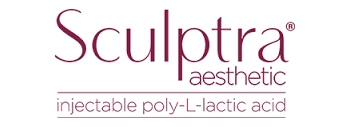
25 Queen's Terrace, SOUTHAMPTON SO14 3BQ
Dr Xavier’s Clinic (London)
At Avanti Aesthetics Clinic, 140 New Cavendish Road
Fitzrovia, LONDON, W1W 6YE
For both clinics call 023 80 637 638


For both clinics call 023 80 637 638

Avoid skincare products with high profile, glossy, unsubstantiated claims as these will serve as a distraction from effective medically proven skincare regimes. Your skin may feel & smell nice with these kinds of products but as you age you may wonder what on earth happened despite all the money you spent. Invest in your skin & it will serve you well!
We are very pleased to have Dr Mark Palmer write about anti-aging skin care for our website and dispel some of the myths about
what we find on the high street.
Dr Palmer is a respected specialist in aesthetic medicine and runs a successful clinic in Leeds. He regularly speaks at conferences
around the world and writes articles in the press about skin care, ageing and aesthetic medicine. All the products mentioned
below are available at our clinic and a personalised anti-aging skin care plan can be developed for you.
Skin can be very effectively prevented from visible aging by using the correct active skin care treatments at home. These products should be
started at a young age and used for life. They are also effective at repairing skin degeneration and damage and so it is not too late to begin
their use at any age.
Unfortunately, we are constantly subjected to high profile marketing from the cosmetics industry, which exists to create a glossy,
upmarket and intensely desirable image for its brands. This easily influences us as we do not have informed knowledge about aging
skin. It creates a constant distraction and prevents us from finding and using skin care regimes that are scientifically proven to be effective.
Whatever their claims, over-the-counter products do not penetrate into the living layers of skin and have no active biological
effects on the skin . If they did, they would be classified as medical products rather than cosmetics and regulated accordingly.
Unfortunately, these products, although often fragrant, luxurious and very expensive will not prevent our skin from aging nor will
they repair skin damage that has already occurred.
Before we can learn how to effectively prevent our skin from aging, we must first understand how and why skin aging occurs.
Essentially, skin ages for two main reasons:
Firstly, it is under constant oxidative and enzymatic attack. These are chemical processes by which important components of the skin
are broken down. Collagen and elastic fibres are broken down and degraded and cells themselves, containing the DNA, are destroyed,
damaged and altered. This leads to loss of tightness, strength and elasticity of the skin and eventually the cellular damage leads to
the development of pre-cancerous and even cancerous changes. Some of the oxidative attack is unavoidable as it occurs as result of the
normal processes of metabolism, but this is dramatically increased as a result of sun (UV) light exposure, tobacco smoking and exposure to
other toxins such as certain drugs and alcohol.
Secondly, the cells in our skin (fibroblast cells) which are able to undertake repair and prevent the skin from aging become dormant
or 'fall asleep' in our early twenties. They therefore do nothing to stop the process of degeneration, which is constantly occurring.
They do rapidly become activated if we wound ourselves and will close the wound as quickly as possible to prevent infection from entering.
However, they then quickly become dormant again and will therefore normally do nothing to prevent our skin from aging. Fortunately, medical
knowledge is now at a stage where we can intervene with certainty to inhibit all these mechanisms of skin aging and keep the fibroblast cells
as active as possible, whatever our age.
A powerful anti-oxidant treatment is the first and most important part of effective anti-aging skin care. Anti-oxidants prevent the
oxidative attack by reacting with and neutralising harmful particles within the skin called 'free-radicals' that cause the oxidative damage.
The most powerful anti-oxidant preparation that is currently available is called CE Ferulic.
This is so effective that its anti-oxidant action also protects the skin eight-fold against sun damage and sunburn, as sunburn is due to
extreme inflammation in the skin caused by oxidative attack.
The high concentration of absorbable vitamin C contained in CE Ferulic also has the added benefits of increasing collagen production by the
fibroblast cells and inhibiting the formation of abnormal pigmentation.
It should be applied once daily to clean, dry skin, preferably in the mornings, and should be used continually from as young an age as possible.
Retinoic Acid: Retinoic Acid (a derivative of vitamin A) is the treatment with the most scientific evidence to prove increased activity of the fibroblast cells.
It is now understood precisely how this works and, in fact, retinoic acid switches on specific genes inside the fibroblast cells to radically
increase their level of activity.
This results in increased collagen and elastin production and increased repair processes within the skin. Skin becomes tighter, firmer and more
elastic with reduced lines and wrinkles. It is a commonly held misconception that retinoic acid thins the skin; in fact the exact opposite is true.
Additional advantages of retinoic acid treatment are increased production of hydrating agents (hyaluronic acid) within the skin and prevention of
enzymatic breakdown of collagen.
Abnormal pigmentation is also inhibited and there is evidence for a reduction in abnormalities of skin cells after treatment with retinoic acid.
Due to its potent biological effects, retinoic acid is classified as a medicine in the UK and is therefore only available from specialised
cosmetic medical clinics.
In the knowledge of the above, some cosmetic companies now add small amounts of retinol (vitamin A) to their products. However, retinol is
completely inactive in skin and does not activate the fibroblast cells. It must be converted into retinoic acid by the skin to have any activity at all.
Unfortunately, it is very poorly absorbed into skin and even more inefficiently converted. Virtually all retinol containing products are therefore
ineffective and do not increase the level of retinoic acid in skin at all.
Glycolic Acid: Glycolic Acid has also been scientifically proven to increase both the activity of and the number of fibroblast cells within the skin.
Collagen and elastin
production is therefore increased, although the exact mechanism of action of glycolic acid is not yet as precisely understood as with retinoic acid.
Glycolic acid has the added advantages of renewing the outer layer of dead skin cells by causing excess dead cell layers to be shed, increasing the level of
hydration of the skin and reducing the appearance of abnormal pigmentation.
Moisturisers: If you use any skin care product at all, no doubt you will use a moisturiser. These are useful, often luxury products, but do not
prevent the skin from aging and therefore are often over-sold.
They are mixtures of tiny droplets of oil and water, as emulsions, and put a fine, semi-occlusive oily layer on to the surface of the skin. This slows
down the rate of water evaporation from the skin's surface and this makes the skin feel smoother and plumped-up.
This can give the appearance of reduced lines and wrinkles but the effect is only temporary. and when the moisturiser is washed off, the effect is gone.
It is important to realise that they do not put moisture into the skin. The skin is impermeable to water and all the water within the skin comes
from the bloodstream and therefore from the fluids that we drink. They simply trap existing moisture within the skin by reducing the rate of loss from the
surface. Some also contain substances, which attract moisture onto the surface of the skin from the atmosphere.
A moisturiser is best used simply as and when needed, whenever the surface of the skin appears slightly rough, dull or dry. They can also be used
as a 'finishing touch' to smooth the surface of the skin and give it a smooth, soft, velvety look and feel, for example before any social occasions.
It is important to choose a moisturiser that does not have too great an oil content for ones skin, otherwise it will clog the pores and lead to
spots. Too frequent or enthusiastic application will also lead to the same problem. Your cosmetic doctor will advise you on the type of moisturiser
that is most suitable for your skin and the correct frequency of application for you.
Hyaluronic Acid: All skin over the age of 50 needs more than just a moisturiser to maintain an optimal state of hydration.
This is because as we age, natural oil (sebum) production in our skin dramatically diminishes and water can therefore very rapidly evaporate
from the surface. The skin can become very dry and very easily irritated leading to eczema and other inflammatory skin disorders.
Sometimes, skin may be genetically dry, with naturally low levels of oil production and therefore will need extra help from a much younger age.
Hyaluronic Acid is the skin's own natural moisturising agent. and the way in which the skin naturally protects itself against dryness. It is a
remarkable molecule, which is present in all of our skin, and it has a dramatic ability to bind and retain moisture. In fact, it is capable of
binding to and retaining more than 1,000 times its own weight in water.
We can now supplement our skin's natural reserves of hyaluronic acid. with a specific preparation of concentrated hyaluronic acid designed to be
applied to the skin's surface. This preparation, called Hydrating B5 gel also contains B complex
vitamins, which can help with tissue repair.
If cumulative cellular damage has resulted in sunspots or other unsightly areas of pigmentation developing, these will often require specific
clinic-based peel treatments.
However, many of the above treatments already described, such as CE Ferrulic, Retinoic Acid and Glycolic Acid will help the problem, gradually
lightening and fading areas of abnormal pigmentation.
In addition, a more specific de-pigmenting agent can be used as part of a daily skin care regime.
This product called Phyto+ contains natural plant extracts and which inhibit an enzyme which forms the
brown pigment in our skin.
As sun (UV) light exposure is one of the main causes of oxidative damage and premature skin aging, a daily sunscreen is an essential part of an
anti-aging skin care program., especially whenever we are outdoors or sitting near glass.
It is important to realise that UV light will easily penetrate through clouds and UVA light, which is just as harmful as UVB, completely penetrates
through glass.
We are therefore at risk when in the car or sitting near a window as well as when outside.
In fact, we now think that UVA light is potentially even more dangerous than UVB, which causes us to burn and gives us a warning signal to get out of
the sun. UVA exposure does not cause sunburn and we can therefore continue to expose ourselves to UVA light for hours, oblivious to the damage that is
occurring to our skin.
As natural sunlight contains both UVA and UVB radiation, it is particularly dangerous to use a sunscreen that blocks UVB but does not block the full
spectrum of UVA light. To do so removes any warning signal that damage is occurring and allows us to receive excessive and damaging doses of UVA radiation
without any sensation of discomfort.
The widespread use of sunscreens which inadequately block the full UVA spectrum, whilst blocking UVB light is now thought to be one of the major causes
of the rapidly increasing incidence of skin cancer in the developed world.
It is essential, therefore, that any sunscreen that is used blocks not only UVB light but also the full spectrum of UVA light.
Most people do not realise, but the SPF (sun protection factor) rating of sunscreens relates only to the sunscreen's UVB protection capability and gives
no indication whatsoever of its effectiveness at protecting against UVA.
Some manufacturers do now rate their sunscreens' UVA protection in various ways, such as by 'star ratings'. However it is important to realise that any
such measures are awarded by the manufacturers themselves to their own products as there is currently no internationally agreed standard measurement of UVA
protection!
Such ratings are therefore open to bias and largely useless. For instance, a manufacturer could give its own sunscreen a high UVA protection rating if
it protects fully against the majority of the UVA spectrum, but completely fails to protect against some harmful wavebands of UVA which are more difficult to block.
The only way we can be certain that a sunscreen will protect against the full UV spectrum, including the full UVA spectrum is to look at the list of
ingredients.
Zinc oxide is the only sunscreen ingredient that will fully block the entire UVA spectrum and we must therefore ensure that any sunscreen we use
contains this ingredient.
Unfortunately, manufacturers often avoid using this due to difficulties in producing cosmetically elegant preparations containing this ingredient
(it can tend to be thick, white and paste-like) and they often prefer to use titanium dioxide instead, which does not block the full UVA spectrum.
Your cosmetic medical clinic can supply sunscreens, which contain zinc oxide, and which we are certain will fully protect you from the entire UV spectrum.
Those that Xavier G. have chosen are cosmetically very elegant on the skin as they contain a specially produced form of zinc oxide which makes it smooth and
transparent without reducing its effectiveness.
Summarised below are the most important aspects of effective anti-aging skin care, categorised by age-group. This is only intended as a guide - your clinic
will give you personal and detailed individual advice during a consultation.
20s (ideally from childhood):
Daily topical anti-oxidant (CE Ferulic). Daily sunscreen with full UVA protection (zinc oxide). Moisturiser as needed. Consider nightly Retinoic acid.
Preventative clinic based treatments (e.g. peels, skin-prick nutrition) advised.
30s
As above plus nightly Retinoic acid. Consider additional glycolic acid/alpha-hydroxy acid treatments, particularly if skin is dull, dry or prematurely
aging. Clinic based treatments advised.
40s
As above plus glycolic acid/AHA treatment recommended. Hyaluronic Acid (Hydrating B5 gel) often needed. Clinic based treatments essential. Regular
medical examination of any skin abnormalities advised.
50s and over
As above plus extra hydration with Hyaluronic acid essential. This can also be injected using skin-prick nutrition techniques. Regular clinic based
treatments essential under medical supervision.
Copyright © Dr Mark Palmer 2006




